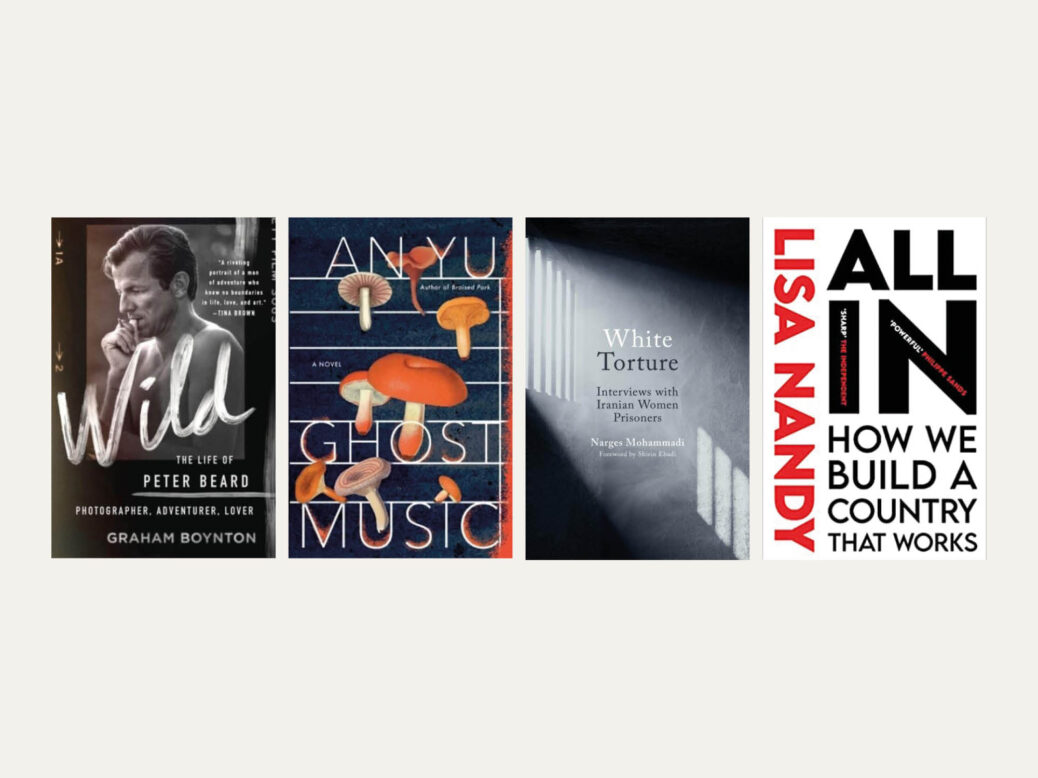
All In: How We Build a Country That Works by Lisa Nandy
HarperNorth, 224pp, £16.99
There is an alternate universe in which Lisa Nandy won the 2020 Labour leadership election. For anyone wishing to imagine the kind of leader she would have been, her new book, All In, will help. Here, the MP draws from her own background – she grew up in Manchester with an English mother and an Indian father – and her time as shadow secretary for foreign affairs and, later, levelling up, to diagnose modern Britain’s malaise.
Whatever one makes of the style, replete with typical politician anecdotes – “It was the summer of 2018 and I was on the picket line” – Nandy makes a powerful argument for rethinking politics. The reason Labour should “seek power,” she writes, “is to give it back” to communities. The fate of the individual is bound up in the whims of multinationals and far-off world leaders. She argues that a “quiet patriotism” is part of the answer, yet refuses to provide her own “blueprint for Britain”.
On occasion the book is revealing. Politics sometimes “has the unreal feeling of a charade about it”, Nandy writes. “This is why, when the rush to attend Prime Minister’s Questions begins on a Wednesday morning, almost without exception, I’m found heading in the other direction.”
By Alona Ferber
White Torture: Interviews with Iranian Women Prisoners by Narges Mohammadi
Oneworld Publications, 272pp, £20
As civil unrest continues in Iran – prompted by the murder in September of 22-year-old Mahsa Amini by the country’s “morality police” – the regime has found increasingly savage ways to crack down on demonstrators. The personal stories compiled in White Torture offer an insight into the especially grim way Iranian authorities dole out punishment.
The journalist and human rights activist Narges Mohammadi has interviewed 13 women, including Nazanin Zaghari-Ratcliffe, about their experiences in Iranian prisons, where they were all subjected to solitary confinement – a monstrous practice known as “white torture”. Mohammadi is a knowledgeable interviewer: she has spent many years in prison and is currently incarcerated. The women, all of whom were jailed for political reasons, recount mentally destructive isolation, unhygienic living conditions, manipulation and harassment by male interrogators, and horrific physical abuse (including electric shocks). It makes for harrowing reading, but their stories highlight the bravery of those still demonstrating against the regime each day – many of them young women – in the hope for something better.
By Megan Gibson
Wild: The Life of Peter Beard by Graham Boynton
St Martin’s Press, 352pp, £27.99
Peter Beard was a man blessed. He came from American railroad money, was unfeasibly good-looking and a darling of other beautiful people, and he turned photographing African animals into an art form. Beard, who died in strange circumstances in 2020, first visited East Africa as a hunter and only later realised that the big game needed saving, although he hated the word “conservation”. Photography was his chosen method, and what elevated his prints was the addition of everything from marginalia and newspaper clippings to leaves and dried blood – often his own.
Beard’s life amounts to an unwritten Hemingway novel. He attended bull fights with Picasso and was a friend of both Andy Warhol and Salvador Dalí; he was painted by Francis Bacon and was a neighbour of Karen Blixen; his innumerable lovers included Lee Radziwill and his later wife Cheryl Tiegs; and his equally innumerable scrapes included being whipped for mistreating a poacher and being gored by an elephant. It is all a gift to a biographer, and Beard’s long-time friend Graham Boynton, a journalist raised in Zimbabwe, does justice to his preposterously full life.
By Michael Prodger
Ghost Music by An Yu
Harvill Secker, 240pp, £14.99
This novel uses an unassuming symbol to explore the meaning of life: the mushroom. In Ghost Music, An Yu examines loss – not only in terms of death and relationships, but also her protagonist’s dissipating sense of self. Song Yan is a young woman who gives up her lifelong ambition of becoming a concert pianist in order to marry. But her emotionally distant and frequently absent husband does not want to start a family, and she is stuck in an apartment with a mother-in-law who does not like her. She experiences an existential crisis.
Orange mushrooms appear and multiply as “ghosts” to taunt her at moments of emotional epiphany, from the horror she feels when she forgets how to play long-practised piano pieces to the pain she experiences on discovering her husband’s darkest secrets. Yu uses magic realism to infuse mystical elements into an otherwise ordinary Beijing city setting, and her symbolism is perplexing in places. Despite this, Ghost Music has beautiful prose and claustrophobic imagery that intensely evokes its protagonist’s alienation.
By Sarah Dawood
Purchasing a book may earn the NS a commission from Bookshop.org, who support independent bookshops
This article appears in the 23 Nov 2022 issue of the New Statesman, Russian Roulette






